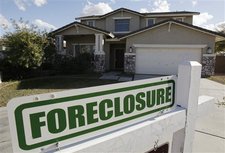Click here for an update to this post.
Many property owners today are exploring options to help strengthen their property to prevent damage during next year’s hurricane season now that the 2017 hurricane season is behind us as well as to improve the energy efficiency of their home. However, such improvements are often cost prohibitive. But back in 2010 our legislators authorized Property Assessed Clean Energy (PACE) programs to help homeowners finance the cost of those home improvements.
PACE programs assist both residential and commercial property owners to finance certain energy efficient and wind resistant improvements to their property. These loans are secured by financial agreements and paid by a non-ad valorem assessment through the property owner’s real property tax bill. In other words, the loan is added to your tax bill and becomes part of your property tax obligation and the loan terms are spread out over time.
Even though PACE programs were authorized by the Florida legislature back in 2010, there were numerous legal challenges both in state and federal court which slowed down its implementation. However, the appellate courts finally resolved the legal challenges to the PACE program in late 2015. Shortly thereafter the program began to grow in popularity. Indeed, there are billboards advertising these programs all over South Florida today.
The advantage of these loans is that the money is fairly easy to secure and accessible pretty quickly too with very reasonable re-payment terms. The PACE program often works with pre-qualified contractors and payment is not made until the job is complete and all permits have been closed. The disadvantage is that the loan will be added to your tax bill thereby increasing your property tax obligation. You will also have to pay some interest on that loan too over the length of the loan.
But the question that is popping up more and more at the closing table is – what do we do with that PACE loan? While there is no uniform answer to that question here are some options:
- Some lenders will agree to take an exception to the PACE financed home improvement program.
- However, other lenders may require that the lien be satisfied at the time of the closing.
- Buyers may also agree to assume the lien if it is not paid off at the time of closing.
The issue of what to do with the PACE loan at the time of the closing will increase in frequency with the anticipated increase in popularity of these PACE loans. It is probably in the best interest of both the buyer and seller to address this issue at the time the contract is signed and not at the closing table.



